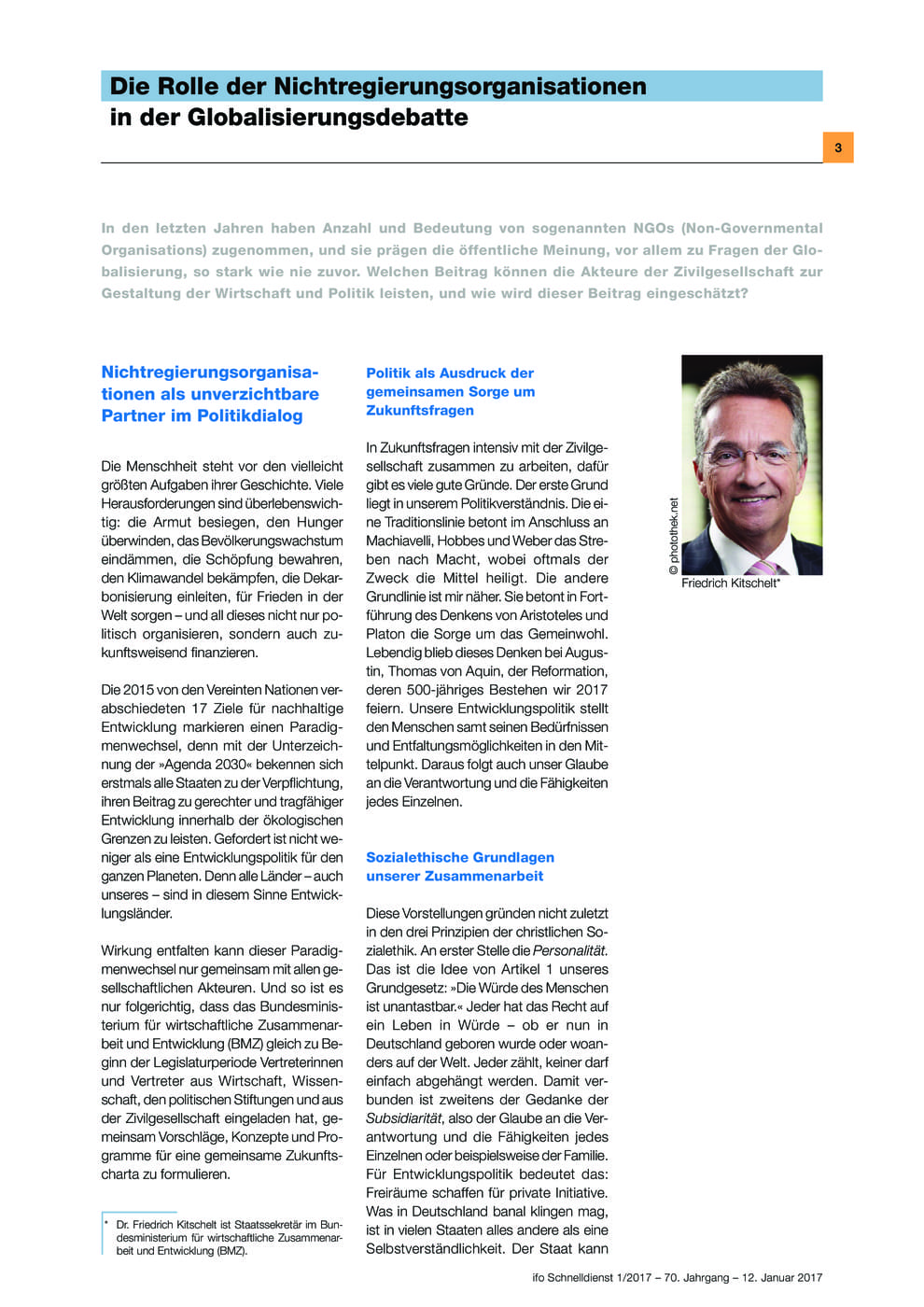The Role of Non-Government Organisations in the Globalisation Debate
ifo Institut, München, 2017
ifo Schnelldienst, 2017, 70, Nr. 01, 03-16

The number and importance of non-government organisations (NGOs) has risen in recent years and they are shaping public opinion more than ever, especially as far as globalisation issues are concerned. Friedrich Kitschelt, German Federal Ministry for Economic Cooperation and Development, sees NGOs as indispensable partners in the political dialogue. NGOs act as the Ministry’s partners and play a key role in mobilising commitment to development policy within the population on the one hand; and form a critical counterpart to the ministry, as well as to multilateral organisations and the EU on the other. A trusting relationship has developed between the Ministry and civil society through multi-faceted dialogue and cooperation as a result. NGOs play a key part in driving changes and critically supervising their implementation. According to Silke Roth, University of Southampton, NGOs also play a central, if contradictory role in the globalisation debate. Although they made an important contribution to political education and the democratisation process after the end of the Cold War; the increasing politicisation and instrumentalisation of NGOs since the 1990s, which were previously seen as neutral, is increasingly debated. According to Achim Brunnengräber, the Free University of Berlin, the climate has become rawer for “civil society.” The scope for action on the part of civil society players is being dramatically reduced and progress already made in terms of democratisation is being undone. Matthias Bauer, European Centre for International Political Economy (ECIPE), Brussels, by contrast, believes that the influence of NGOs, especially on public opinion in terms of questions of globalisation, is stronger than ever before. Public opinion over TTIP in Germany and Austria testifies to the renewed power of NGOs, which, instead of throwing light on the opportunities and consequences of free trade agreements, have merely expressed their fundamental opposition to such agreements.